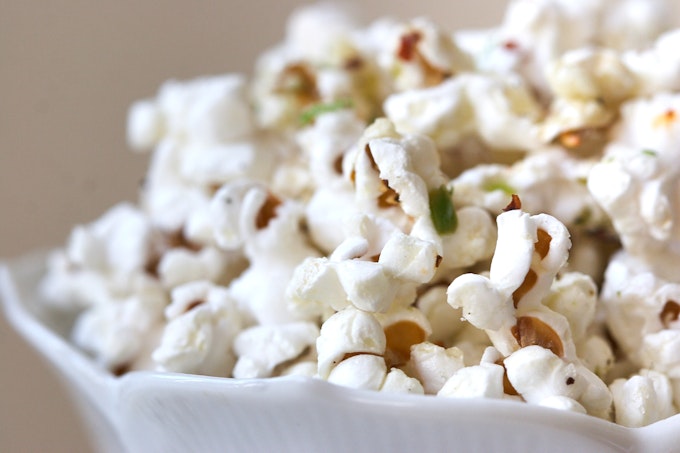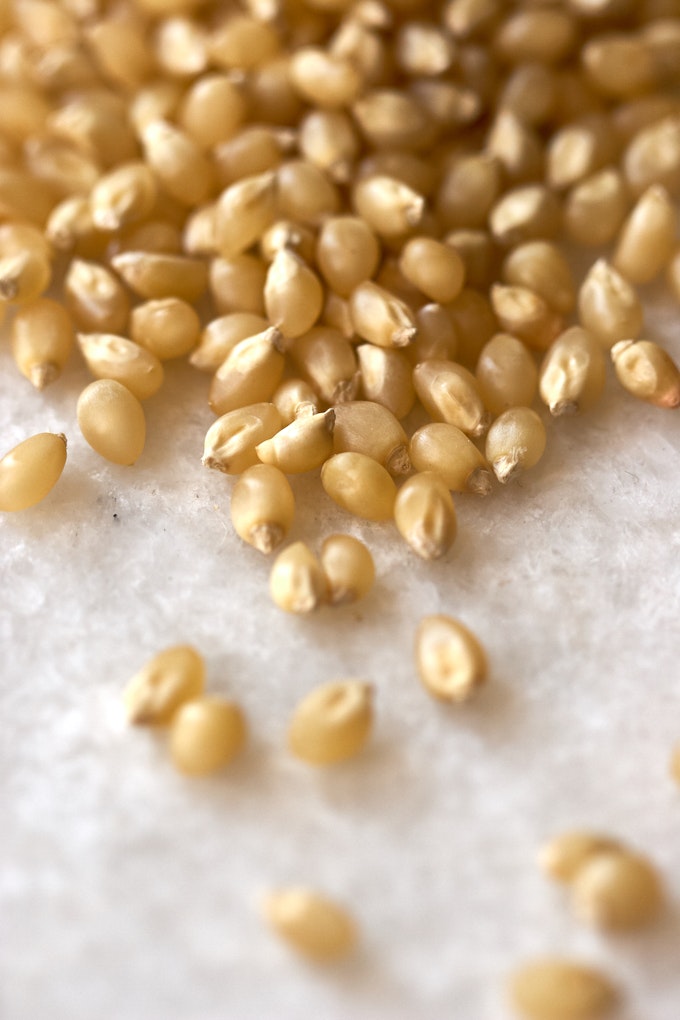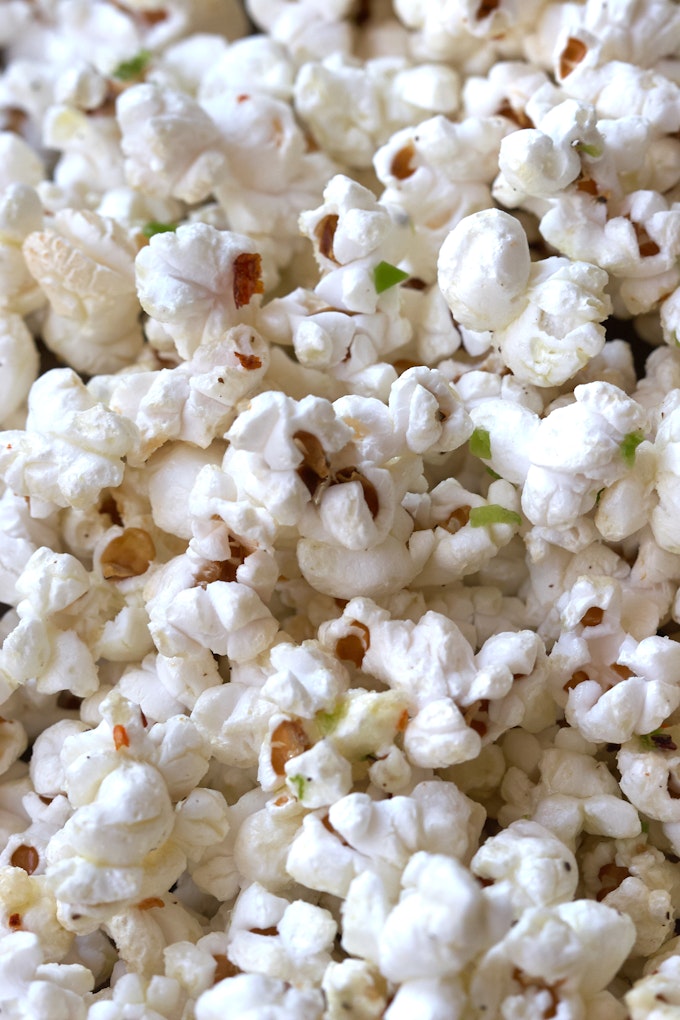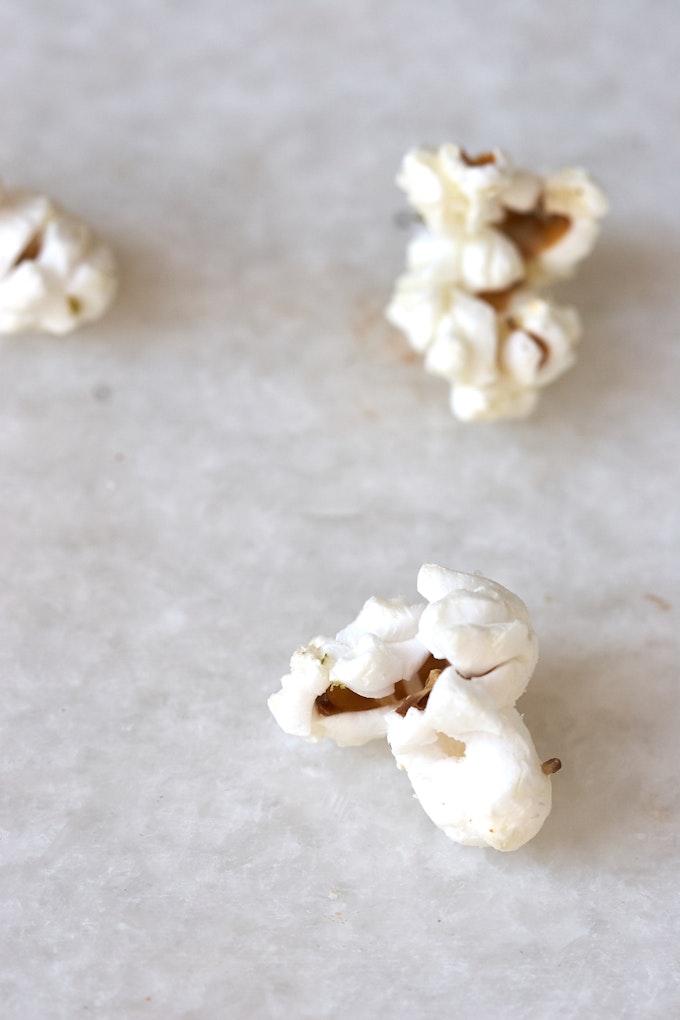I often half-jokingly tell people one of the hardest things to cook consistently is perfect stovetop popcorn. Keyword: consistently. If you’ve ever burned a batch, or ended up with dozens of un-popped kernels, you know what I’m saying. Pull up a seat. This is where I’ve netted out after hundreds of batches of homemade popcorn.

Homemade Popcorn: Why Bother?
It’s a quick, fantastic, inexpensive, healthful snack. Everyone delights in popcorn. And, everyone loves to get involved in experimenting with different flavors. You can make perfect stovetop popcorn in a flash, so ditch those bags of pre-popped kernels. When you make homemade popcorn you also know exactly what ingredients are going in the bowl. Also, microwave popcorn? Just no.
Popcorn Pro-tip: Skip the Oil
Let’s get this out of the way first. Pop your popcorn in a dry pan or skillet, no oil. Controversial, I know, but I find that popping popcorn in hot oil increases the likelihood of burnt popcorn and dead kernels. Dry pan popping results in beautiful light popcorn that provides the perfect blank canvas for all your favorite seasonings.

Best Pan for Making Perfect Stovetop Popcorn?
The two pans I use most for making popcorn are a deep pasta pot (big batch), and a wide, deep skillet (small batch). You’re going for wide, with a lot of surface area. In either case a fitted lid is needed, although in a pinch you might try placing a baking sheet over your pot. Careful though, it gets hot.
A lot of people will recommend using thick bottom pots or Dutch ovens to make popcorn. It’s decent advice, especially if you’re not the most attentive cook. If you can hit the right steady temperature, thick pots are more forgiving. That said, I love using my copper pans to pop popcorn. They’re relatively thin and very responsive. That makes it easy to dial back the heat and adjust quickly of you sense your pan is hot. A long way of saying, keeping an eye on your temps is probably more important than obsessing about the perfect pot to use.

Cover but Crack
A good lid is important when making popcorn, but there’s a bit of a strategy here. For the best results, and lowest number of un-popped kernels leave the lid open just a hairline amount. It allows any steam or moisture to get out as well, resulting in fluffy kernels.

Popcorn Seasoning Ideas
Once you have a perfect bowl of fluffy, crisp kernels the seasoning game is on. Here are a few ideas. And please, if you have other favorite popcorn seasonings, drop a comment.
Turmeric Popcorn: A long time fave. Kernels tossed with a short list of power ingredients – ghee, clarified butter, or coconut oil plus turmeric, saffron, nutritional yeast, sesame, and toasted coconut.
Use Compound Butters: Gently melt any of these for flavor-packed drizzles. Lemon Miso Butter is great here, as is Scallion Dill Butter.
Bloody Mary Popcorn: It’s what happens when popcorn meets the flavors of a Bloody Mary cocktail.
Chile Lime Tequila: Fresh popcorn is tossed with melted butter, lime juice, jalapeno peppers, red pepper flakes, cumin and a splash of tequila.
Classic Buttered Popcorn: This is built into the recipe below, but I’ll mention an alternative here. Ghee is a great swap for melted butter on popcorn. It has wonderful brown butter notes from the toasted milk solids, and less water content. This means no soggy kernels.
Continue reading Perfect Stovetop Popcorn on 101 Cookbooks

0 comments